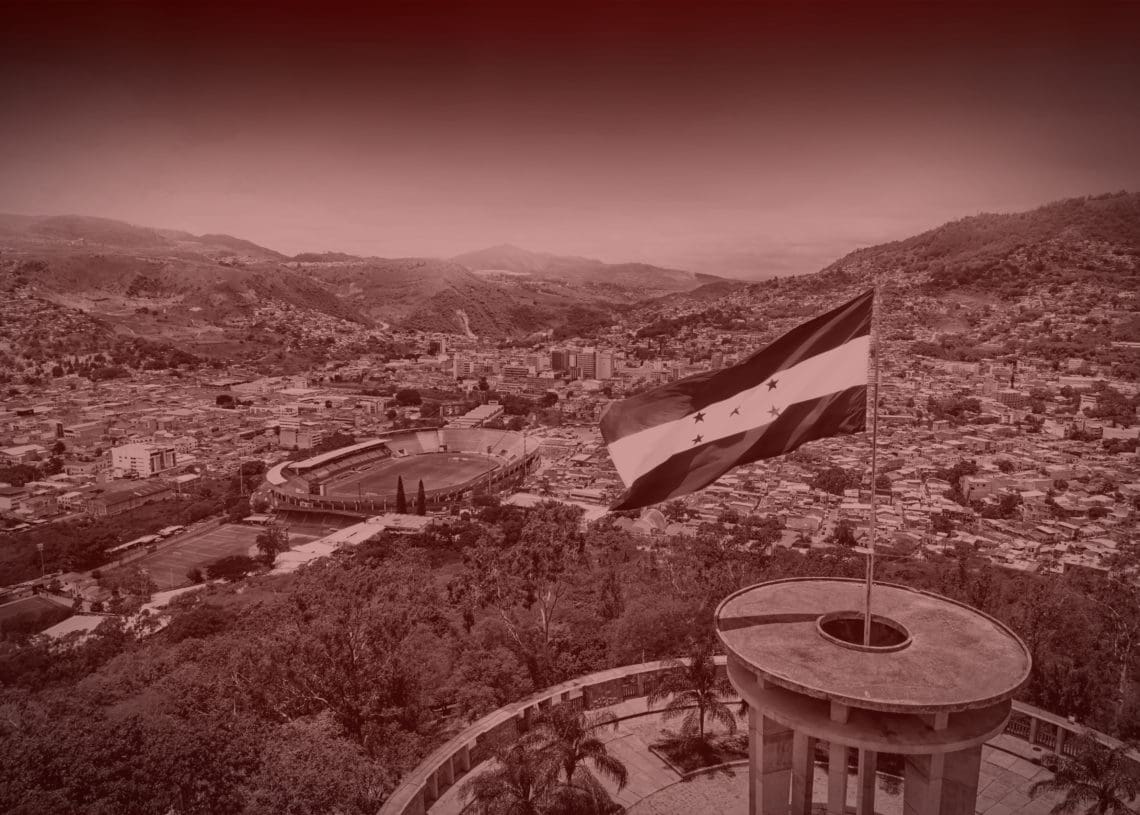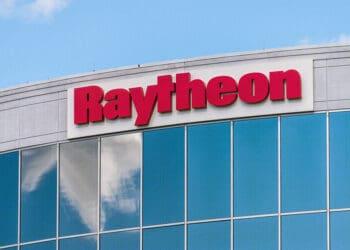With the sentencing of Tony Hernandez, brother to Honduran President Juan Orlando Hernandez, the Southern District of New York and DOJ continue their work to dismantle a corrupt multinational drug trafficking network.
Update: Former Honduran congressman Tony Hernández was sentenced March 30, 2021, to life In prison and ordered to forfeit $138.5 million for distributing 185 tons of cocaine and and for offenses relates to firearms and false statements. More on the verdict from DOJ.
Antonio “Tony” Hernandez, the brother of Honduran President Juan Orlando Hernandez, is set to be sentenced on March 30 in the Southern District of New York for his 2019 guilty conviction of weapons charges and conspiracy to traffic cocaine in the U.S. Tony Hernandez was supposed to be sentenced on March 23. Instead, the government quietly moved to continue the sentencing until March 30 and filed the legal equivalent of a nuclear bomb against the Hernandez brothers in a sentencing submission.
This filing, which was accompanied by 109 pages of exhibits, put forward evidence that Tony Hernandez is not cooperating with U.S. authorities. Prosecutors want him to spend every last breath he has in a high-security U.S. federal penitentiary. In addition to a life sentence and 30 additional years, U.S. Attorney Audrey Strauss is seeking the forfeiture of $138.5 million, which Hernandez earned from his involvement in the drug trade, along with the maximum statutory fine of $10 million.
Looking beyond Tony Hernandez, his sentencing submission pulls no punches. It states that Juan Orlando Hernandez, the President of Honduras, “played a leadership role in a violent, state sponsored drug trafficking conspiracy.”
Tony Hernandez’s Oversight of a Multinational Drug Trafficking Operation
Prosecutors say Tony Hernandez corrupted the democratic institutions of Honduras to enrich himself by transporting at least 185,000 kilograms of cocaine. He ran his drug organization in concert with heavily armed members of the Honduran military and Honduran National Police, including Honduras’ National Police Chief. With the help of his brother, the president, he controlled cocaine laboratories in Colombia and Honduras, bribed politicians and helped cause at least two murders. He made $138.5 million in blood money and secured millions of dollars in drug-derived bribes to his brother, the current President of Honduras; former Honduran president Lobo Sosa; and other politicians. He even funneled a $1 million bribe from Mexican drug kingpin “El Chapo” Guzman of the Sinaloa Cartel to his brother, Juan Orlando Hernandez.
#Honduras President Juan Orlando Hernández on the defensive after he emerged as a central figure in the US trial of Geovanny Fuentes Ramírez, who was convicted of participating in the same international cocaine trafficking conspiracy as Tony Hernández, JOH’s now-jailed brother. https://t.co/ETDMDUgL3k
— Parker Asmann (@PJAsmann) March 24, 2021
In addition, the prosecution offered details about many events that warrant the enhancement of Tony Hernandez’s sentence, including the fact that he or his defense team leaked witness names to the media in defiance of a court protective order forbidding the disclosure of witness names. Prosecutors also outlined many murders of co-conspirators of Tony Hernandez that were likely to cooperate with U.S. authorities, all of which occurred after his arrest.
The Conviction of Geovanny Fuentes Ramirez
To say the week of March 22 was a bad one for Tony and Juan Orlando Hernandez is a tremendous understatement. On the 22nd, Geovanny Fuentes Ramirez, a high-level Honduran drug trafficker and close ally of the Hernandez brothers, was convicted of drug trafficking and weapons offenses. He likely faces life in prison and holds many of the Hernandez brothers’ secrets. Testimony during Fuentes Ramirez’s trial detailed the delivery of briefcases stuffed with cash from drug deals to Juan Orlando Hernandez, as well as his attending clandestine meetings with traffickers, during which he was quoted to say, “We are going to stuff the drugs up the gringos’ noses, and they’re never even going to know it.”
The testimony at Fuentes Ramirez’s trial is emblematic of Honduras’ bizarre normal. Similar to the drug trafficking alliance between Tony and Juan Orlando Hernandez, Ramirez is alleged by U.S. authorities to have trafficked large quantities of cocaine with his brother, Christian Josue Fuentes Ramirez, who is now a candidate running for a seat in the Honduran Congress.
The Ongoing Crackdown Against Honduran Drug Smuggling
The Biden Administration has all but publicly disavowed the statement made in 2020 by Donald Trump’s acting DHS Secretary Chad Wolf, who remarkably proclaimed, “Honduras is a valued and proven partner to the U.S. in managing migration and promoting security and prosperity in Central America.”
The month after Biden took office, eight democratic senators, led by Senator Jeff Merkley of Oregon, submitted the Honduras Human Rights and Anti-Corruption Act of 2021 to various senate committees. If passed, the bill will suspend certain U.S. assistance for the government of Honduras until corruption, impunity and human rights violations are no longer systemic and the perpetrators of these crimes are brought to justice. This proposed legislation makes no bones about the U.S.’s current view of the President of Honduras. It specifically notes, “There is substantial evidence that President of Honduras Juan Orlando Hernandez has engaged in a pattern of criminal activity and use of the state apparatus to protect and facilitate drug trafficking …”
Senator Merkley’s bill details many steps recently taken by the government of Honduras to entrench corruption, block oversight by national prosecutors and international investigators and shield senior officials and parliamentarians from criminal liability. It notes atrocity after atrocity carried out by representatives of the Honduran government against human rights and environmental defenders, including 204 assassinations of rights defenders since 2019. It focuses on countless arbitrary detentions, forced disappearances involving activists, journalists, opposition politicians and others. It calls for sanctions on Honduras’ president, the revocation of his visas to travel to the U.S., as well as the prohibition of the U.S. exportation of equipment or training to Honduran police or military.
Merkley’s bill is one of 11 exhibits in support of U.S. District of Southern New York’s sentencing submission filed this month concerning President Hernandez’s brother, Tony Hernandez.
The next step in the U.S. strategy concerning Honduras will play out in a Manhattan Federal courtroom at 2:00pm on March 30. The presiding judge recognizes the global impact of Tony Hernandez’s sentencing. A large courtroom and an overflow room have been put aside for those that can attend the sentencing, but live audio of the proceeding will also be available by dialing (888) 363-4747 and access code 3667981.
Given the relentless effort by DEA, U.S. prosecutors, elected U.S. officials and the U.S. State Department, hopefully the people of Honduras recognize that the U.S. will not remain silent in the face of their suffering at the hands of corruption and human rights abuses. The U.S. intends to hold Honduran President Juan Orlando Hernandez and others accountable for their crimes. Doing so is in the interest of the Honduran people, as well as U.S. citizens. These crimes fuel widespread poverty and violence and force honest Hondurans to flee their communities in search of safety. It is humanity’s duty to raise collective voices in opposition of this oppression.



 Robert Mazur, a federal agent for 27 years, is a court-certified expert in money-laundering related matters in both the U.S. and Canada. He is the New York Times bestselling author of “The Infiltrator,” a memoir of his life undercover as a money launderer within the underworld, and was an executive producer of the film by the same name. He is president of KYC Solutions, a company that provides speaking, training, consulting and expert witness services globally.
Robert Mazur, a federal agent for 27 years, is a court-certified expert in money-laundering related matters in both the U.S. and Canada. He is the New York Times bestselling author of “The Infiltrator,” a memoir of his life undercover as a money launderer within the underworld, and was an executive producer of the film by the same name. He is president of KYC Solutions, a company that provides speaking, training, consulting and expert witness services globally.











